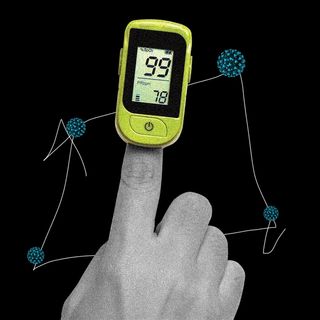Scientists just developed a blood test that can diagnose Alzheimer’s in a simple, affordable, and less invasive manner, studies from the United States and Sweden suggest. They report the blood test can detect Alzheimer’s in early stages, possibly years before symptoms appear, which has been a longtime goal for Alzheimer’s and dementia researchers.
Alzheimer’s is a fast-moving, aggressive disease that predominantly affects women. In India, by 2050, the number of people with Alzheimer’s is expected to triple, The Swaddle has previously reported. The disease causes damage to cognitive abilities, including memory, by building up damaging proteins (tau tangles and amyloid plaques) that cause brain cells to die. So far, most Alzheimer’s research involves people who have already lived with Alzheimer’s and experienced this damage first-hand, which often complicates developing research designed to hold off the disease.
With this blood test, it would be possible to test people with Alzheimer’s in the family but who show no symptoms, essentially catching them at a stage when the disease hasn’t progressed, making diagnoses and perhaps possible preventative therapies easier to develop.
In the latest studies presented at the Alzheimer’s Association International Conference this week, scientists tested people with dementia to evaluate if they had Alzheimer’s or another neurodegenerative condition, and found elevated levels of a protein, p-tau217, that could predict Alzheimer’s dementia with 96% accuracy. People with Alzheimer’s had seven times the amount of tau protein, than people either without any dementia, or with other neurogenerative disorders such as Parkinson’s disease. They found the blood test to be more accurate and efficient than the current methods doctors use to diagnose Alzheimer’s — brain scans and memory tests, after the symptoms have occurred, and almost as accurate as autopsies.
Related on The Swaddle:
Why Alzheimer’s Is a Woman’s Disease
While this clinical blood test requires further investigation, with more, diverse people and more time, it could be made available for use in two to three years, scientists say. This could provide a handy way to diagnose people who have cognitive issues with Alzheimer’s, ruling out other neurodegenerative diseases, further helping streamline treatment and therapy options for patients. One possible major impact of this discovery, scientists say, is early detection — as much as 20 years before symptoms show — in people who have the genetic mutation that causes Alzheimer’s. This is groundbreaking because Alzheimer’s is considered an aggressive disease, and there is little known about how to treat it effectively once symptoms appear.
“It’s not a cure, it’s not a treatment, but you can’t treat the disease without being able to diagnose it. And accurate, low-cost diagnosis is really exciting, so it’s a breakthrough,” Dr. Michael Weiner, an Alzheimer’s disease researcher at the University of California, San Francisco (not involved in the latest study), told the New York Times.
The methods scientists used to come to the conclusion — immunoassays and mass spectrometry — are two analytical tests whose invention has radically changed our ability to catch complex neurological disorders determined by the presence of macro and micro proteins, which can be detected in blood. As we figure out ways to make both of these processes more accessible and accurate, it opens up opportunities to dig deep into the structure of diseases, to be able to nail down exactly what components can prove instrumental to diagnostics and treatment.
For now, scientists need to use these methods to expand the current research, to be able to conclusively say, for a large amount of people, that this test works and is accurate. These results don’t mean a test is available right now, but could very well signal a new world for Alzheimer’s patients and potentials soon.




